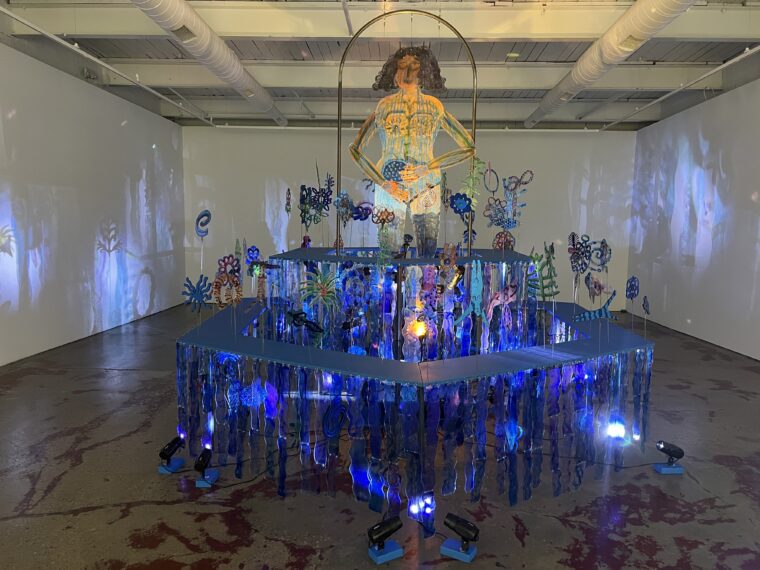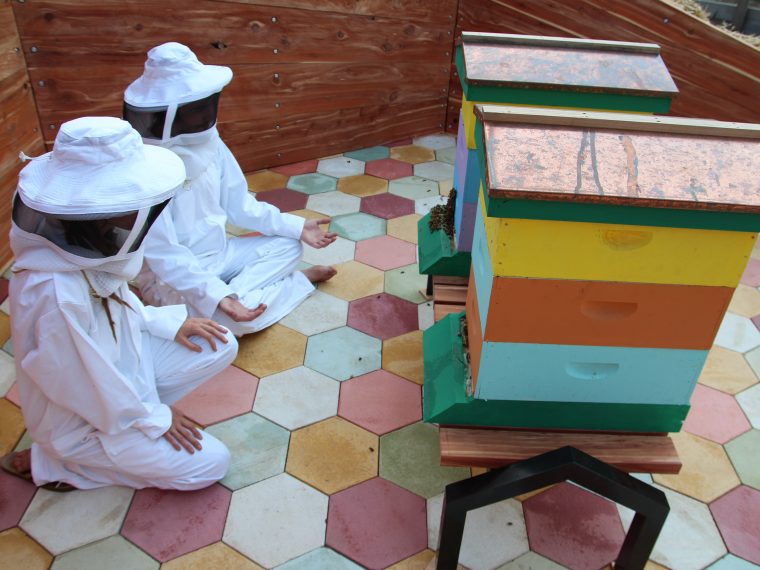Five artists based in Indianapolis have just been awarded $12,000 each to create new, often risk-taking visual art projects through a grant program operated by the Indianapolis-based arts nonprofit, Big Car Collaborative.
Power Plant Grants — made possible by The Andy Warhol Foundation for the Visual Arts, based in New York — fund visual artists and artist groups producing public-facing work that is experimental and brings new energy to the city’s arts community. Big Car is one of 39 organizations across the United States working to support artists via funds from The Andy Warhol Foundation for the Visual Arts’ Regional Regranting Program.
“The arts community of Indianapolis brings together diverse voices that significantly contribute to the social and cultural landscape of the city and region,” says Khadija Nia Adell, Regional Regranting Program Officer at the Andy Warhol Foundation for the Visual Arts, “Power Plant Grants amplify these voices by providing a platform for experimental and forward-thinking public projects, and we are grateful to Big Car Collaborative for its guidance and care in making this grant possible.”
This is the sixth round of Power Plant Grants in Indianapolis. The program started here in 2020 as emergency grants distributed during the height of the pandemic. Big Car also awarded $60,000 in project grants to artists in 2021, 2022, 2023, and 2024.
“These grants are about more than funding — they’re about investing in artists who enrich culture and community in our city,” said Shauta Marsh, who leads the program for Big Car. “It’s an honor to support these artists as they bring such powerful and timely projects to life,
and we’re grateful to the Andy Warhol Foundation for the Visual Arts for continuing to believe in the importance of this work.”
The jurors for this year’s round included past Power Plant Grant winner and Indianapolis artist Bryn Jackson; Indiana-based artist and Ball State art professor Audrey Barcio; and Olivia Amaya Ortiz of 516 ARTS in Albuquerque, New Mexico — another institution in the Regional Regranting Program.
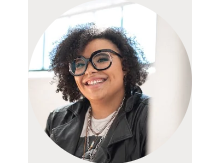 Korie Griggs: “And So It Is”
Korie Griggs: “And So It Is”
she/her
“And So It Is” is a hybrid book of memoir, poetry, and ritual that explores grief as both personal and collective. Rooted in Griggs’ experience as a Black, Indigenous, disabled grief worker and death doula, it weaves stories of loss, ancestral practices, and somatic wisdom into an archive of remembrance and healing. With support from the Power Plant Grant, the book will be completed and launched through two community events — a reading and ritual at a community space, and an outdoor gathering with land-based practices for collective grief. “And So It Is” invites communities to grieve together, honor the dead, and discover how loss can become a source of connection, creativity, and care.
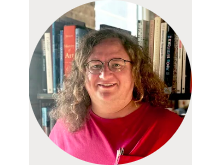 Rob Funkhouser: “Sonic Playground”
Rob Funkhouser: “Sonic Playground”
he/him
“Sonic Playground” is a large, modular sound installation and interactive system that exists between sculpture and sound art. Built from wood and electronics joined with specialty hardware, the work can be endlessly reconfigured, serving as both artwork and platform for a new body of research into immersive, interactive sound. Featuring a multi-dimensional input array of tactile, positional, visual, and sonic sensors, it invites audiences to explore sound in playful, intuitive ways free from digital mediation. As part of this project, “Sonic Playground” will be installed in several public spaces, with each configuration designed to highlight a different mode of interaction through touch, movement, and real-time performance control.
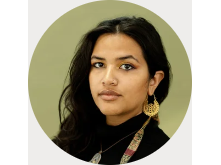 Nasreen Khan: “Botanical Bodies”
Nasreen Khan: “Botanical Bodies”
she/her
“Botanical Bodies” is an interdisciplinary project that combines oral history, portraiture, and botanical symbolism to complicate dominant narratives about sex work while centering the voices of sex workers themselves. In collaboration with photographer Rachel Schwebach, Khan will conduct participant-guided interviews and photo sessions that inform final artworks rendered as woodburned and oil-painted portraits. Each portrait will obscure facial identity with botanically accurate illustrations chosen by participants, drawing on the Victorian “language of flowers” to encode personal histories in symbolic form. The project will culminate in a public exhibition featuring both the portraits and participants’ stories.
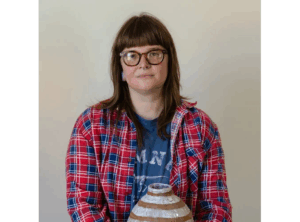 Jen Swim: “Queering Clay”
Jen Swim: “Queering Clay”
they/them
“Queering Clay” will create access for LGBTQIA+ folks to engage with ceramics by bringing free, mobile clay programming directly to LGBTQIA+ organizations. Over six weeks, Swim will offer instruction and hands-on experiences for participants who may not otherwise have access to clay. Alongside this community-focused program, Swim will develop a new body of large-scale ceramic works exploring themes of body, scale, and identity. The project will culminate in a two-part exhibition at Patina Gallery in Indianapolis, with one showcasing community partner creations, and one featuring Swim’s new work.
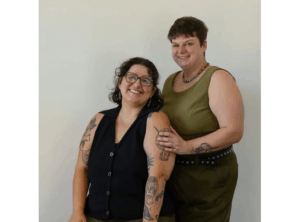 Jasmine Tafoya Photo – Jasmine Tafoya & Brit Indwell: “This is Home: Preserving
Jasmine Tafoya Photo – Jasmine Tafoya & Brit Indwell: “This is Home: Preserving
Queer Families in Indianapolis”
they/she & they/them
“This is Home” is a collaborative exhibition celebrating the everyday magic of queer family life in Indianapolis. Through intimate portraits, interviews, and reimagined domestic spaces, the project will document five to seven LGBTQIA+ families, archiving their lives as both sacred and ordinary. Personal relics such as notes, recipes, drawings, and keepsakes will appear alongside photographs in multi-sensory vignettes of home. Debuting during Pride Month 2026 with a companion magazine, Jasmine and Brit — queer artists raised on Indy’s southside and now building a family of their own — offer this work as both celebration and archive.
ABOUT POWER PLANT GRANTS
Organized and facilitated by Big Car Collaborative staff, Power Plant Grants support — on an annual basis — visual artists who live or work in Indianapolis with project grants of $12,000. The Andy Warhol Foundation for the Visual Arts funds Power Plant Grants through their Regional Regranting Program. Find more information at powerplantgrant.org.
ABOUT BIG CAR COLLECTIVE
Big Car Collaborative brings art to people and people to art, sparking creativity in lives to support communities. As a nonprofit arts organization, they utilize tools of culture and creativity to build community and social cohesion — connecting people as a way to boost quality of life. Much of their work happens on a single block where they own or co-own more than 20 properties, including a long-term affordable housing program for artists and Tube Factory — a contemporary art museum with a cafe, studios, and community space. At their campus of adaptive reuse buildings and public greenspace, they host community and cultural programs to promote social connectivity, cooperation, and creativity. Big Car Collective also facilitates people-focused placemaking and place keeping projects through their Spark Placemaking program on Monument Circle and beyond. Tune in to their experimental, community-focused radio station, 99.1 FM WQRT — also streaming at wqrt.org. Find more information at bigcar.org.
